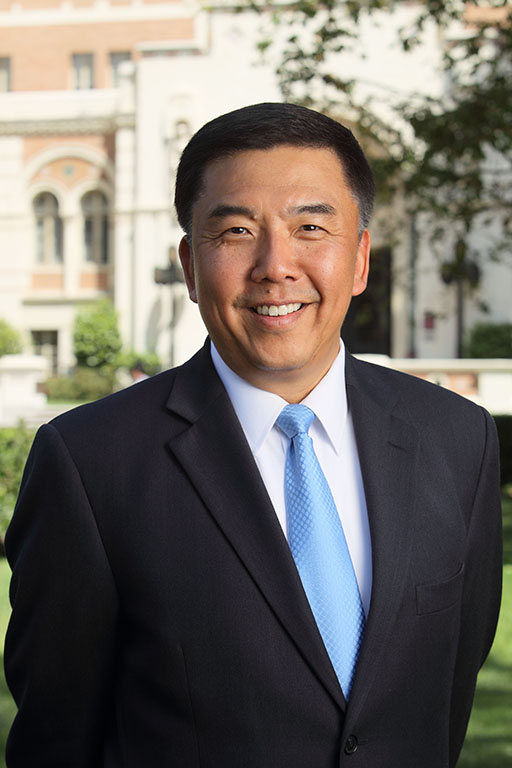
A research team called C-DOCTOR (Center for Dental, Oral and Craniofacial Tissue and Organ Regeneration), initiated by the Ostrow School of Dentistry of USC, is one step closer to developing products that facilitate tissue regeneration, thanks to a $12-million award from the National Institute of Dental and Craniofacial Research (NIDCR).
The financial reward stems from a challenge issued by NIDCR two years ago for researchers to develop safe and effective clinical strategies for dental, oral and craniofacial tissue regeneration.
“This is really about engineering products,” explained Yang Chai, one of the study’s principal investigators. Chai is Ostrow’s associate dean of research, George and MaryLou Boone Professor of Craniofacial Molecular Biology, director of the Center for Craniofacial Molecular Biology, and a professor of stem cell biology and regenerative medicine. “It’s not only about being able to understand what stem cells can do, but also how you deliver the stem cells for patient care.”
An example of the projects that the Ostrow-initiated research team—which includes seven other California-based universities and organizations—hopes to develop is an effective way to use a 3-D printed, dissolvable scaffold to help organize stem cells for focused repair and regrowth of bone tissue.
Using stem cells to regenerate bone
“Bone deficiency is a very common problem that patients face when they need an implant or when they have periodontal disease, traumatic injury or a birth defect,” Chai said. “Instead of stealing bone from other parts of the body, we’re going to be able to use stem cells to regenerate their own bone.”
From the NIDCR’s original request for applications, 10 groups were selected as Stage 1 awardees, allowing them to continue competing for Stage 2 funding.
During Stage 1, the groups—composed of dental clinicians, researchers, engineers, biomaterials experts and regulatory scientists—worked together to identify areas in which tissue regeneration could improve patient outcomes and make an immediate impact.
Ostrow researchers and DDS students also surveyed craniofacial surgeons, oral surgeons and dentists from all specialties to determine areas of clinical need. From the surveys, they determined that bone, soft tissues, tooth structure and periodontal tissues were areas that could be served best by the team’s expertise.
From the original 10 awardees, just two were selected, including C-DOCTOR, to continue their work into Stage 2. A University of Michigan-led group is the other awardee.
Chai explained that, during Stage 2, the research team will take their study from a small to large animal model to prepare it for a Phase I clinical trial.
A truly collaborative effort
“USC already had a strong history and reputation in developmental biology and stem cell tissue regeneration,” Chai said of C-DOCTOR’s success in the competition. “But in this case, it was our partnership with really strong academic institutions throughout California that really made this consortium stand out.”
The California-based C-DOCTOR consortium includes the USC Viterbi School of Engineering, the Keck School of Medicine of USC, Children’s Hospital of Los Angeles and the USC School of Pharmacy. Outside of USC, the University of California, San Francisco; the University of California, Los Angeles; the University of California, Berkeley; the University of California, Davis; the University of California, San Diego; Stanford University; and the City of Hope complete the massive West Coast effort.
“No one can do everything by themselves,” Chai said. “This is something that truly has to be done through a collaborative effort.”
In addition to Chai, Ostrow’s Mark Urata and USC Viterbi’s Yong Chen are principal investigators from USC on the study. Bridget Samuels, also housed at Ostrow, is the senior research coordinator.
“We are very excited to embark on this journey because we can see that our research will make a direct impact to improve human health care,” Chai said.
